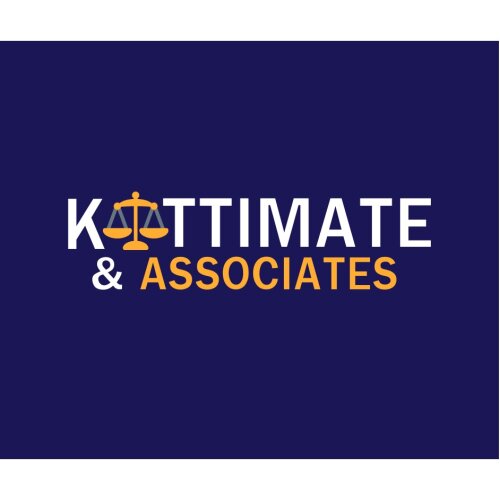ทนายความ กฎหมายไซเบอร์, ความเป็นส่วนตัวของข้อมูล และการคุ้มครองข้อมูล ที่ดีที่สุดใน ประเทศไทย
แบ่งปันความต้องการของคุณกับเรา รับการติดต่อจากสำนักงานกฎหมาย
ฟรี ใช้เวลา 2 นาที
หรือปรับแต่งการค้นหาของคุณโดยเลือกเมือง:
รายชื่อทนายความที่ดีที่สุดใน ประเทศไทย
1. เกี่ยวกับกฎหมายไซเบอร์ ความเป็นส่วนตัวของข้อมูล และการคุ้มครองข้อมูลในประเทศไทย
ประเทศไทยมีกลไกกฎหมายที่ควบคุมการประมวลผลข้อมูลส่วนบุคคลและการใช้งานเทคโนโลยีสารสนเทศอย่างเป็นทางการ กรอบหลักรวมถึงกฎหมายไซเบอร์ที่ดูแลความมั่นคงทางไซเบอร์ และกฎหมายคุ้มครองข้อมูลส่วนบุคคล (PDPA) เพื่อคุ้มครองสิทธิส่วนบุคคลและข้อมูลส่วนบุคคล
การบังคับใช้มุ่งเน้นที่การกำกับดูแลการเก็บ รวบรวม ใช้ และเปิดเผยข้อมูลส่วนบุคคล รวมถึงการกำหนดความรับผิดชอบของผู้ประมวลผลข้อมูล เช่น นิติบุคคลและหน่วยงานรัฐ
PDPA เน้นหลักการที่ผู้ควบคุมข้อมูลต้องโปร่งใส มีมาตรการความปลอดภัย และมีสิทธิของเจ้าของข้อมูลในการเข้าถึง แก้ไข และลบข้อมูล
2. ทำไมคุณอาจต้องการทนายความ
หากคุณกำลังเผชิญสถานการณ์ด้านไซเบอร์ ความเป็นส่วนตัวของข้อมูล หรือการคุ้มครองข้อมูลในประเทศไทย ต่อไปนี้คือกรณีที่ต้องการทนายความอย่างชัดเจน
- บริษัทเกิดเหตุข้อมูลรั่วไหลของข้อมูลลูกค้าหรือพนักงาน จำเป็นต้องประเมินความผิดทางกฎหมาย แนวทางรับมือ และการแจ้งต่อหน่วยงานที่เกี่ยวข้อง
- องค์กรดำเนินการประมวลผลข้อมูลสุขภาพหรือข้อมูลอ่อนไหว ต้องออกแบบนโยบายความเป็นส่วนตัวและขอความยินยอมอย่างถูกต้องตาม PDPA
- ธุรกิจต้องโอนข้อมูลส่วนบุคคลข้ามพรมแดน ต้องพิจารณามาตรการคุ้มครองและกรอบการถ่ายโอนข้อมูลตาม PDPA
- กรณีคำร้องขอข้อมูลจากหน่วยงานรัฐหรือคำสั่งศาล ต้องขอคำปรึกษาเรื่องข้อจำกัดด้านข้อมูลและขั้นตอนปฏิบัติ
- ต้องจัดทำ/ปรับปรุงนโยบายความเป็นส่วนตัวและสัญญาความยินยอมให้สอดคล้องกับกฎหมายใหม่
- มีข้อสงสัยเกี่ยวกับข้อกำหนดด้านความปลอดภัยไซเบอร์ขององค์กรและการฝึกอบรมพนักงาน
3. ภาพรวมกฎหมายท้องถิ่น
ต่อไปนี้เป็นกฎหมายหลักที่มักถูกอ้างถึงเมื่อพูดถึงไซเบอร์ ความเป็นส่วนตัวของข้อมูล และการคุ้มครองข้อมูลในประเทศไทย
- พระราชบัญญัติคุ้มครองข้อมูลส่วนบุคคล พ.ศ. 2562 (PDPA) กำกับการเก็บ ใช้ และเปิดเผยข้อมูลส่วนบุคคล พร้อมสิทธิของเจ้าของข้อมูล และข้อกำหนดการโอนถ่ายข้อมูลข้ามประเทศ
- พระราชบัญญัติคอมพิวเตอร์ พ.ศ. 2550 ซึ่งรวมบทบัญญัติว่าด้วยการกระทำความผิดเกี่ยวกับคอมพิวเตอร์ เช่น การเข้าถึงระบบโดยมิชอบ การดัดแปลงข้อมูล และการแพร่กระจายข้อมูลอันเป็นอันตราย
- พระราชบัญญัติคุ้มครองความมั่นคงปลอดภัยไซเบอร์ พ.ศ. 2560 บัญญัติกฎหมายด้านความมั่นคงไซเบอร์และการกำกับดูแลโครงสร้างพื้นฐานด้านดิจิทัลของประเทศ
ข้อมูลเพิ่มเติมสามารถตรวจสอบได้จากแหล่งข้อมูลทางราชการ เช่น สำนักงานคณะกรรมการคุ้มครองข้อมูลส่วนบุคคล (PDPC) และ Krisdika สำหรับบทกฎหมายฉบับรัฐธรรมนูญ
4. คำถามที่พบบ่อย
อะไรคือ PDPA และผู้ควบคุมข้อมูลคือใคร
PDPA คือพระราชบัญญัติคุ้มครองข้อมูลส่วนบุคคล ผู้ควบคุมข้อมูลคือบุคคลหรือนิติบุคคลที่กำหนดวัตถุประสงค์การประมวลผลข้อมูล ผู้ควบคุมข้อมูลต้องรับผิดชอบด้านความปลอดภัยและความโปร่งใส
อย่างไรจึงเริ่มทำ Privacy Notice และนโยบายความเป็นส่วนตัว
เริ่มจากระบุชนิดข้อมูลที่เก็บ วิธีการประมวลผล วัตถุประสงค์ ระยะเวลาการเก็บรักษา และสิทธิของเจ้าของข้อมูล จากนั้นจัดทำข้อตกลงการประมวลผลข้อมูลกับผู้รับผิดชอบภายนอก
เมื่อไหร่ควรแจ้งเหตุละเมิดข้อมูลส่วนบุคคล
หากเกิดเหตุละเมิดที่อาจกระทบความเป็นส่วนตัว ต้องประเมินความเสี่ยงและแจ้งต่อ PDPC และเจ้าของข้อมูลทันทีตามข้อกำหนดของ PDPA
ที่ไหนและอย่างไรจึงแจ้งหน่วยงานรัฐเมื่อจำเป็น
กรณีข้อมูลรั่วหรือการละเมิดที่มีผลกระทบต่อสิทธิบุคคล ต้องแจ้งต่อหน่วยงานที่ดูแลข้อมูลส่วนบุคคล (PDPC) ตามช่องทางที่กำหนด
ทำไมต้องจ้างทนายความด้าน PDPA
ทนายความช่วยให้คุณวางกรอบการประมวลผลข้อมูล ปรับปรุงสัญญา และให้คำแนะนำเรื่องการเฝ้าระวังความปลอดภัยและการแจ้งเหตุเพื่อหลีกเลี่ยงความเสี่ยงทางกฎหมาย
สามารถยกเว้นบางข้อของ PDPA ได้ไหม
บางกรณีอาจมีข้อยกเว้นหรือข้อกำหนดเฉพาะ ขึ้นอยู่กับประเภทข้อมูล เหตุผลการประมวลผล และผู้ที่เกี่ยวข้อง ทนายความช่วยประเมินสถานการณ์เพื่อหาทางออกที่ถูกต้อง
ค่าธรรมเนียมทนายความด้าน PDPA เป็นอย่างไร
ค่าธรรมเนียมขึ้นกับความซับซ้อน ระยะเวลาการดำเนินงาน และขอบเขตบริการ เริ่มจากการให้คำปรึกษาเบื้องต้นจนถึงการแทนคุณทางกฎหมาย
PDPA กับ GDPR ต่างกันอย่างไร
PDPA มีข้อกำหนดเฉพาะของไทยและผ่านระบบการบังคับใช้ในประเทศ ขณะที่ GDPR เน้นการคุ้มครองข้อมูลในสหภาพยุโรปและมีข้อกำหนดที่เข้มงวดกว่าบางส่วน
การโอนข้อมูลข้ามพรมแดนมีข้อจำกัดอะไรบ้าง
การโอนข้อมูลออกนอกประเทศไทยต้องมีมาตรการคุ้มครองที่เหมาะสม เช่น ข้อตกลงสัญญา การอนุมัติจาก PDPC หรือมาตรการคุ้มครองข้อมูลที่เทียบเท่ากับ PDPA
ฉันต้องมีนโยบายความเป็นส่วนตัวฉบับภาษาไทยทั้งหมดหรือไม่
ควรมีนโยบายความเป็นส่วนตัวที่ชัดเจนสำหรับผู้ใช้งาน โดยมีภาษาไทยเป็นหลัก และภาษาอังกฤษเพิ่มเติมสำหรับผู้ใช้ต่างชาติ
ฉันสามารถร้องเรียนกรณีละเมิดข้อมูลต่อ PDPC ได้อย่างไร
หากเห็นการละเมิดข้อมูลส่วนบุคคล คุณสามารถยื่นเรื่องร้องเรียนผ่านช่องทางของ PDPC พร้อมเอกสารหลักฐานที่เกี่ยวข้อง
เราจะตรวจสอบความถูกต้องของสัญญาให้สอดคล้อง PDPA อย่างไร
ทนายความจะตรวจสอบวัตถุประสงค์การประมวลผล ขอบเขตข้อมูล สิทธิของเจ้าของข้อมูล และมาตรการความปลอดภัยก่อนเซ็นสัญญา
ธุรกิจขนาดเล็กควรเริ่มอย่างไรเพื่อความสอดคล้อง PDPA
เริ่มจากทำData Inventory ปรับปรุงนโยบายความเป็นส่วนตัว กำหนดหน้าที่ความรับผิดชอบ ทีมงานและผู้รับผิดชอบการประมวลผลข้อมูล
ฉันสามารถขอสำเนาข้อมูลที่ส stored ในระบบได้หรือไม่
ใช่ ผู้เจ้าของข้อมูลมีสิทธิขอสำเนาข้อมูลที่ถูกรวบรวมจากผู้ควบคุมข้อมูล และร้องขอให้แก้ไขหรือลบข้อมูลได้ตามกฎหมาย
5. ทรัพยากรเพิ่มเติม
- สำนักงานคณะกรรมการคุ้มครองข้อมูลส่วนบุคคล (PDPC) - แหล่งแนวทาง กรอบการปฏิบัติ และประกาศล่าสุด: pdpc.go.th
- กระทรวงดิจิทัลเพื่อเศรษฐกิจและสังคม (MDES) - นโยบายด้านดิจิทัลและกฎหมายที่เกี่ยวข้อง: mdes.go.th
- สำนักงานคณะกรรมการกฤษฎีกา (Krisdika) - ข้อกฎหมายและร่างกฎหมายที่เผยแพร่สาธารณะ: krisdika.go.th
6. ขั้นตอนถัดไป
- ระบุปัญหาหรือกรณีให้ชัดเจน รวมข้อมูลเหตุการณ์ที่เกี่ยวข้อง เพื่อให้ทนายความเข้าใจลักษณะงาน
- ค้นหาทนายความด้านไซเบอร์ ความเป็นส่วนตัว และการคุ้มครองข้อมูลที่มีประสบการณ์ในไทย
- ติดต่อขอคำปรึกษาเบื้องต้นและขอประมาณการค่าใช้จ่าย
- ส่งเอกสารที่เกี่ยวข้อง เช่น นโยบายความเป็นส่วนตัว สัญญา และโครงสร้างข้อมูล
- สรุปข้อเสนอและเซ็นสัญญาจ้าง พร้อมระบุขอบเขตงานและค่าใช้จ่าย
- ติดตามความคืบหน้า ดำเนินการตามแผนปฏิบัติ และเตรียมตัวสำหรับการแจ้งเหตุหรือคุ้มครองข้อมูล
- ประเมินผลลัพธ์และปรับปรุงแนวทางการปฏิบัติให้สอดคล้องกับกฎหมายที่เปลี่ยนแปลง
Lawzana ช่วยคุณค้นหาทนายความและสำนักงานกฎหมายที่ดีที่สุด ใน ประเทศไทย ผ่านรายชื่อผู้เชี่ยวชาญด้านกฎหมายที่มีคุณสมบัติเหมาะสมที่คัดสรรและตรวจสอบล่วงหน้า แพลตฟอร์มของเรานำเสนอการจัดอันดับและโปรไฟล์โดยละเอียดของทนายความและสำนักงานกฎหมาย ช่วยให้คุณเปรียบเทียบตามสาขากฎหมาย รวมถึง กฎหมายไซเบอร์, ความเป็นส่วนตัวของข้อมูล และการคุ้มครองข้อมูล ประสบการณ์ และความคิดเห็นของลูกค้า
แต่ละโปรไฟล์ประกอบด้วยคำอธิบายเกี่ยวกับสาขากฎหมายของสำนักงาน รีวิวจากลูกค้า สมาชิกในทีมและหุ้นส่วน ปีที่ก่อตั้ง ภาษาที่พูด ที่ตั้งสำนักงาน ข้อมูลการติดต่อ การมีตัวตนบนโซเชียลมีเดีย และบทความหรือแหล่งข้อมูลที่เผยแพร่ สำนักงานส่วนใหญ่บนแพลตฟอร์มของเราพูดภาษาอังกฤษและมีประสบการณ์ทั้งในเรื่องกฎหมายท้องถิ่นและระหว่างประเทศ
ขอใบเสนอราคาจากสำนักงานกฎหมายชั้นนำ ใน ประเทศไทย — รวดเร็ว ปลอดภัย และไม่ยุ่งยาก
ข้อจำกัดความรับผิดชอบ:
ข้อมูลที่ให้ไว้ในหน้านี้มีวัตถุประสงค์เพื่อเป็นข้อมูลทั่วไปเท่านั้นและไม่ถือเป็นคำแนะนำทางกฎหมาย แม้ว่าเราจะพยายามตรวจสอบความถูกต้องและความเกี่ยวข้องของเนื้อหา แต่ข้อมูลทางกฎหมายอาจเปลี่ยนแปลงได้ตามกาลเวลา และการตีความกฎหมายอาจแตกต่างกันไป คุณควรปรึกษาผู้เชี่ยวชาญด้านกฎหมายที่มีคุณสมบัติเหมาะสมเพื่อขอคำแนะนำเฉพาะสำหรับสถานการณ์ของคุณเสมอ
เราปฏิเสธความรับผิดทั้งหมดสำหรับการกระทำที่ทำหรือไม่ทำตามเนื้อหาในหน้านี้ หากคุณเชื่อว่าข้อมูลใดไม่ถูกต้องหรือล้าสมัย โปรด contact us และเราจะตรวจสอบและแก้ไขตามความเหมาะสม
เรียกดูสำนักงานกฎหมาย กฎหมายไซเบอร์, ความเป็นส่วนตัวของข้อมูล และการคุ้มครองข้อมูล ตามเมืองใน ประเทศไทย
ปรับแต่งการค้นหาของคุณโดยเลือกเมือง

















